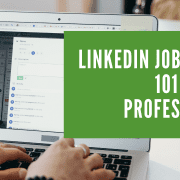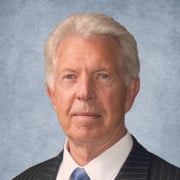The Real Estate Resume – Tips and Resources
Some of you are working to land that first professional job in real estate. Others are hoping to leverage existing education and industry experience to move up. Regardless of where you are, the content, format, and style of your real estate resume is essential to your success.
Why?
It is your first impression on paper.
In this post, I’ll discuss what makes real estate different from other industries, what employers in this industry want to see, share the resume templates, and provide methods to review and submit resumes for a career in real estate.
THE NUANCES OF A RESUME FOR REAL ESTATE
Commercial real estate is unique among its occupational peers. As a viable asset for institutional investors, it’s relatively young. As an academic area of study, it is likewise in its infancy. While sectors such as banking have been the domain of large institutions run by highly-educated and specialized professionals for generations, real estate was mostly controlled by private families, owner-operator companies, governments and farmers with little to no formal education in real estate until the late 20th century.
This means today’s real estate professionals are largely bifurcated into two groups: younger professionals, formally-educated in real estate or business, entering at a time when institutions are beginning to dominate the industry; and older, deal-seasoned professionals with non-real estate specific degrees/education who got in before modern real estate conventions had hardened.
REAL ESTATE AS A MERITOCRACY
This dynamic creates a few phenomena specific to real estate that are important to consider as you write your resume. First, real estate is still largely a meritocracy – pedigree matters much less than does know-how, passion, drive, and firsthand deal experience. This means you’ll need to emphasize results – whether directly or indirectly related to real estate – over other quantitative metrics. What you’ve done – or what you are clearly capable of doing – is far more important than who you are. Download our A.CRE Real Estate Resume Template to see an example of how we emphasize results and use keywords, along with market/product type specifics in each of the following functions of real estate: Acquisitions, Development, Investment, Asset Management, Brokerage.
CRE FANATICS
Second, real estate people are weirdly fanatical about their industry. I’m not sure if this is because of the tangible nature of the asset, or because it has long been the domain of the non-institutions, or for some other reason. You’ll quickly find, however, that as you work in CRE, most everyone has a “why I got into real estate” story and they often start with0: “when I was a kid…”.
For some, they developed a passion for real estate driving around with Mom or Dad checking on rental properties. For others like me, it was working in construction as a high school kid and completely digging the built environment. Whatever their reasons, real estate professionals tend to be especially impassioned with their industry and they expect the same from you. As you write your resume, think about how you can communicate your passion for CRE.
LEAN TEAMS
Third, real estate organizations tend to run lean. Your local developer with $100+ million in annual investment may only have 10 – 20 people, and only half of those may actually be real estate professionals. Even large institutions with billions in AUM, may only have 50 – 100 people. As a result, HR plays less of a role in the hiring process than in other industries. It’s not atypical for a real estate firm to assign a member of the team to hiring/recruiting duties in addition to their daily real estate duties. Or in other words, the person doing the hiring is very likely the person you’ll be working with day-to-day.
So as you craft your resume, think about what a real estate person, not an HR person, would want to read. Don’t be afraid to use industry-specific terms, share industry-specific tools you are proficient in, and mention achievements or obscure deals that only a real estate person would be aware of. Use your resume to speak directly to your future co-worker(s), as he/she is likely the one who will be reading it.
Also, keep in mind your fit for the organization. Given how small real estate teams are, they want to be sure that you will fit in well with the culture. So ask yourself, what can I share that will show the company that my skills and temperament are complementary to the group? Or what can I add that is missing from this team? Our Career Accelerator Program will help you craft your resume and help you brainstorm relevant topics and stories for your interviews.
Not sure where to start with your job search? Download our Commercial Real Estate Company Database Tool to browse over 2,000 real estate companies, filter by Location, Company Type, Job Function, and Property Type, and create a target list of companies for your job search.
IT’S ALL ABOUT WHO KNOWS YOU
Finally, real estate is a relationship business. I recognize that this isn’t unique to real estate. But given the local nature of this industry and the no-two-markets or no-two-properties are the same elements of real estate, who you know matters – A LOT. It’s likely you’ll hand out more resumes to people you know (or people who know about you) than to random HR people. So keep it concise, include only what matters, and make sure you don’t spend so much time writing your resume that you neglect the most important part of the process – networking. It’s a hand-to-hand combat type of job search process. (Click here to see our Advice for Young Professionals with Mike Strug).
HOW TO WRITE YOUR REAL ESTATE RESUME
So now that I’ve covered the nuances of writing a real estate resume, allow me to offer a few suggestions and resources that I follow when writing my real estate resume.
USE A FAMILIAR TEMPLATE
Given that I look at 50+ resumes daily, the template matters! I was taught that if you can use a resume template that employers are more familiar with, it is more likely that it’ll be read. This makes sense, especially if your resume is in front of a busy real estate professional who’s been tasked with sifting through a pile of resumes. If your resume is a familiar template, they’ll be able to quickly and effectively read through the resume, find what they need to make a yes/no decision, and move on.
In terms of templates, we have identified resumes that were most commonly seen in the marketplace. This template was created in response to requests for a uniform format from our A.CRE readers.
PAY ATTENTION TO FORMAT
It doesn’t matter how solid your content is, a poorly formatted resume will kill your chances of landing that job. First impressions matter and your formatting is the first impression for the resume reader. So here are a few rules of thumb I recommend:
- Keep it to one page – If it doesn’t fit, you can talk about it in person.
- Stick to standard fonts and font sizes – With Times New Roman, Ariel, Calibri, and other standard business fonts at 11pt or 12pt font you can’t go wrong. Venture into the unknown, and you’re taking a risk not worth taking.
- If you’re just a few years out of college (either undergraduate or graduate), start with education followed by experience and special interests and skills. If you’re seasoned, lead with experience followed by education and special interests and skills.
- Organize items from newest to oldest (i.e. reverse chronological order).
BULLET POINT ACHIEVEMENTS, NOT TASKS
This gets to the “meritocracy” point I made earlier. Real estate professionals respect substance over form. Tell them what you accomplished rather than what you did.
One good way of thinking about this is to use the Problem-Action-Result method. What was a problem you encountered? What action did you take to address the problem? And what was the result of your action? If you’re interested in learning more about the PAR method, you can find a good resource here that discusses the method in the context of interviewing. It’s a good cerebral exercise for brainstorming achievements you can highlight on your resume and then discuss in more detail during the interview.
In the downloadable template in the following functions of Acquisitions, Development, Investment, Asset Management, Brokerage, you can see examples of achievements.
POST YOUR RESUME TO THE A.CRE JOBS RESUME DATABASE
Included with the A.CRE Job Board is a growing resume database where you can share your profile with employers and recruiters. Every week our internal team combs through these resumes and reaches out if a position suits your experience. Other job sites offer similar options to share your resume in a proactive effort to cast the widest job search net possible. If you’re aggressively in the hunt for a job in CRE, I highly recommend you take advantage of these types of free resources to get your name out there. Here are a few links of interest:
REAL ESTATE CAREER COACHING
Our team of real estate recruiting professionals would be happy to talk about your resume or career advice. Feel free to shoot us an email, connect with us on LinkedIn, or schedule a time.
If you are looking for something more formal, you might check out the Career Accelerator option as part of the A.CRE Accelerator.
Frequently Asked Questions about Real Estate Resumes
What makes a resume for real estate different from other industries?
Real estate is still largely a meritocracy, meaning “what you’ve done – or what you are clearly capable of doing – is far more important than who you are.” Results and deal experience matter more than pedigree.
Why is using industry-specific language on your resume important in CRE?
Real estate companies often run lean and hiring is frequently done by professionals rather than HR. “The person doing the hiring is very likely the person you’ll be working with day-to-day,” so they expect to see familiar terminology and tools.
What is the benefit of using a standard, familiar resume template?
Using a familiar template increases the likelihood your resume will be read. “If your resume is a familiar template, they’ll be able to quickly and effectively read through the resume, find what they need… and move on.”
What should CRE candidates emphasize in their resume bullet points?
Use bullet points to highlight achievements, not tasks. “Tell them what you accomplished rather than what you did,” using the Problem-Action-Result method to demonstrate results.
How important is passion for real estate when crafting your resume?
Very important. “Real estate professionals tend to be especially impassioned with their industry and they expect the same from you.” Your resume should subtly communicate your “why” for being in real estate.
Why is formatting critical in a CRE resume?
First impressions matter. “It doesn’t matter how solid your content is, a poorly formatted resume will kill your chances of landing that job.” Keep it to one page, use standard fonts, and organize in reverse chronological order.
Where can I find a strong resume template tailored to CRE roles?
You can download the A.CRE Real Estate Resume Template, which emphasizes results and includes examples for different real estate functions such as Acquisitions, Development, and Asset Management.
How should I leverage my resume beyond just submitting applications?
“Real estate is a relationship business,” so distribute your resume through networking. Also, “post your resume to the A.CRE Job Board… and other resume databases” to expand your reach and visibility.
What role does culture fit play in CRE hiring?
A big one. Real estate teams are small, so firms are looking for people who fit well. “Ask yourself… what can I share that will show the company that my skills and temperament are complementary to the group?”
About the Author: Tucker is currently the Head of Training and Career Services at A.CRE where he is responsible for talking with universities, companies, and candidates about our training and career opportunities. Prior to A.CRE, Tucker spent 2 years at the 9th largest executive recruitment firm, where he focused on recruiting professionals in Commercial Real Estate with a focus on Multifamily, Office, Industrial and Single-Family Development, Acquisition, and Asset Management roles. Tucker holds a BBA in Real Estate Finance from Southern Methodist University. During his time there, Tucker became President of the Real Estate Club. This role was instrumental in providing guidance and connecting students with careers in CRE. In doing this, Tucker discovered a passion for connecting companies and candidates. Tucker currently resides in Dallas, TX.









